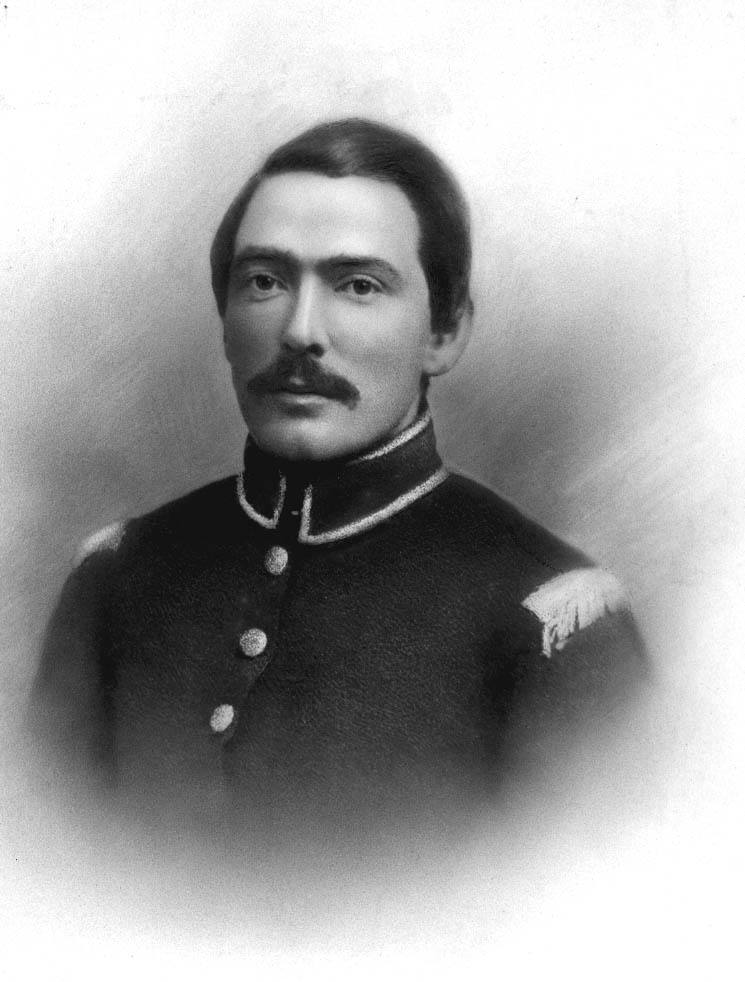
By Joey Harrington, Special Collections intern
Colonel Frank Coxe was born in 1839 to a slave-holding family on the Green River Plantation in Rutherford County, NC. The grandson of a prominent financier and land speculator who served in the Treasury Department during George Washington’s presidential administration, Coxe’s own career was marked by investments in the coal and railroad industries. However Coxe’s business ventures took a turn in the mid-1880s when he established the Battery Park Hotel in Asheville, North Carolina — the largest development to occur in Asheville up to that time. In a 1979 interview his grandson (also named Frank) reflects on how his grandfather ended up in Asheville’s tourism industry:
Now my grandfather, Colonel Coxe, after the Civil War, he went to Charlotte. This coal money was pretty big money in those days, and he was considered a wealthy man… He spent about half of his time there and half of his time in Philadelphia. But had always had his eye on this Asheville area, because of his feeling that this could be one of the greatest resort areas in the country. When the railroads, four of them, from four directions, came in here, and he helped finance the building of the road from Old Fort up to this. [sic] He decided that the time was ripe to invest in Asheville, and in the form of this hotel, particularly. As I say, I think that the Battery Park Hotel was the springboard for this community.
The original Battery Park Hotel, constructed in 1886 and torn down in the 1920s, was situated on a scenic hill in downtown Asheville where a Confederate battery stood during the Civil War. According to historian Richard Starnes the hotel was built, in part, to “lure northern capitalists to the mountains, hoping luxurious accommodations and a pleasant visit would lead to regional ventures” (Starnes 49).
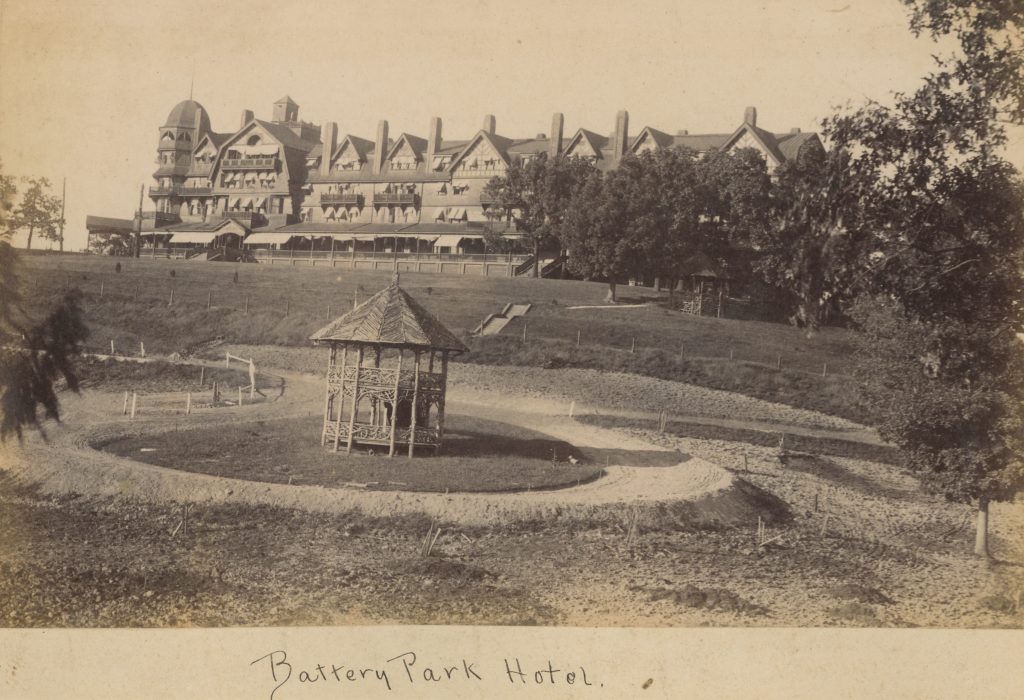
In addition to the hotel, Colonel Coxe also accumulated large tracts of land throughout the Asheville area, to the point that “every one of the buildings that you see along College and Patton, that were built between 1900 and 1920, except for the Public Service Building […] they were all built by the family” (Coxe Interview). Needless to say, by the end of his long career Colonel Coxe accumulated a large estate which according to a 1903 Citizen Times article was worth 7 million dollars (close to 200 million dollars in 2018 money according to the Bureau of Labor Statistics inflation calculator).

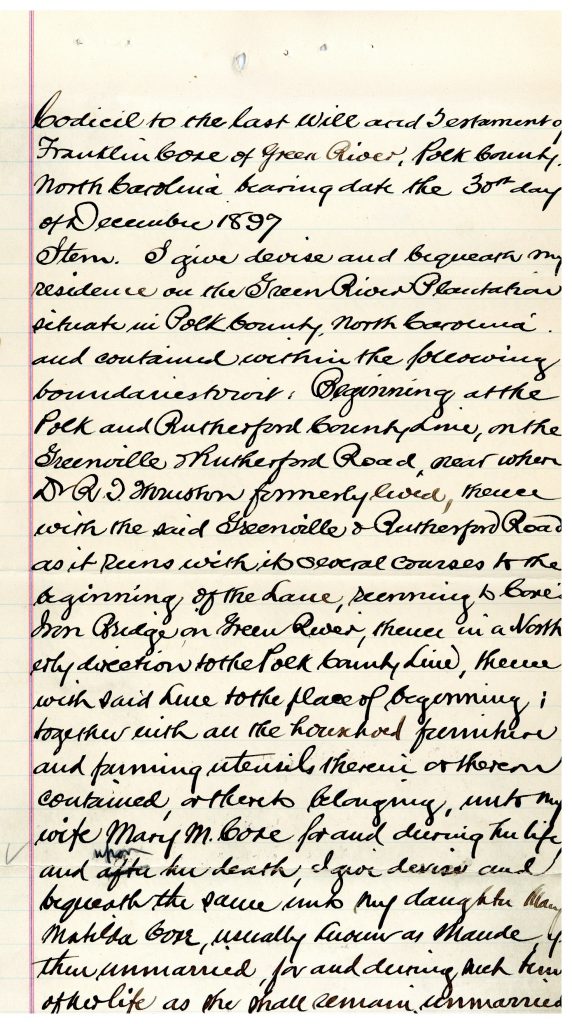
After Colonel Frank Coxe’s death in 1903, the Coxe Estate was bequeathed to his children Francis, Otis, Tench, and Maude. With the exception of Otis, they became the estate’s trustees, managing the properties and investments after their father’s passing.
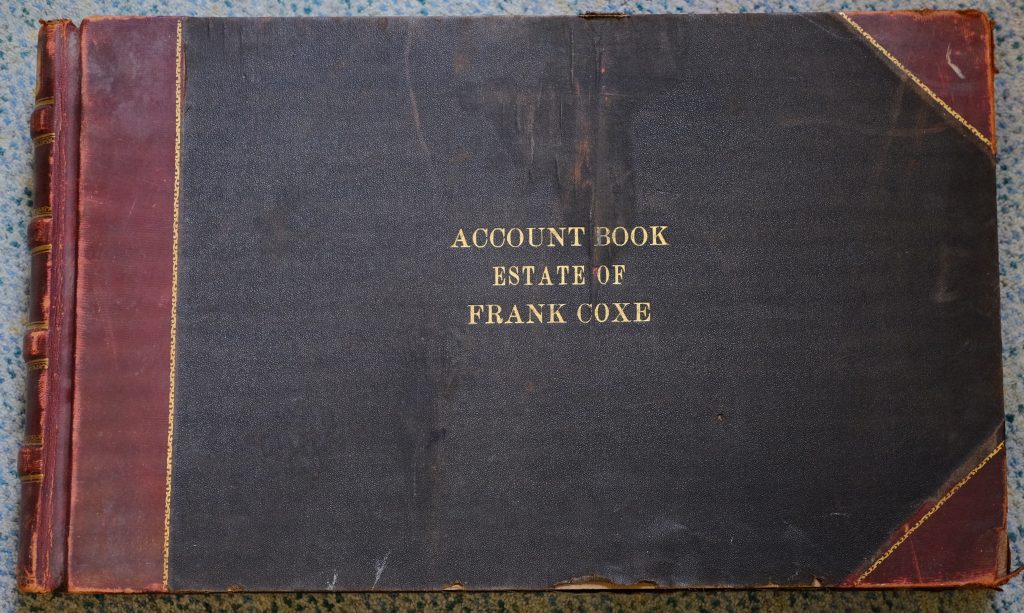
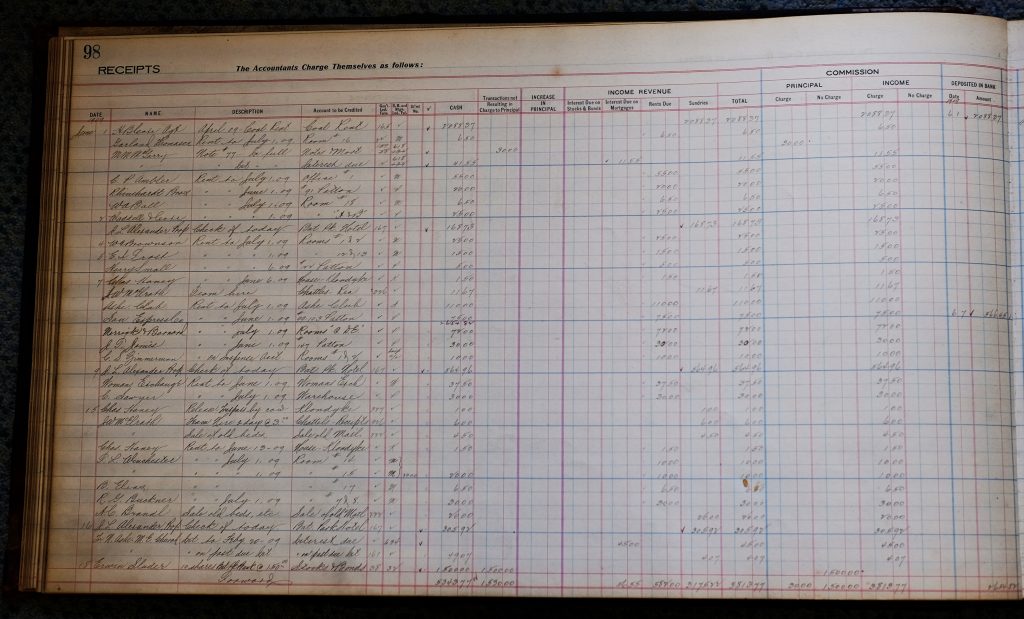
In 2018, a ledger book, titled the “Frank Coxe Estate,” was donated to UNCA’s Special Collections by private collector Bill Hart (the ledger can now be found in the Frank Coxe Papers). In the hand scribed book, business dealings from 1908 to 1914 are recorded in detail, documenting “Receipts” which includes income from the Battery Park Hotel, rental properties and the like, and “Disbursements,” documenting the payments to the Coxe children, land purchases, upkeep on properties, and other miscellaneous payments.
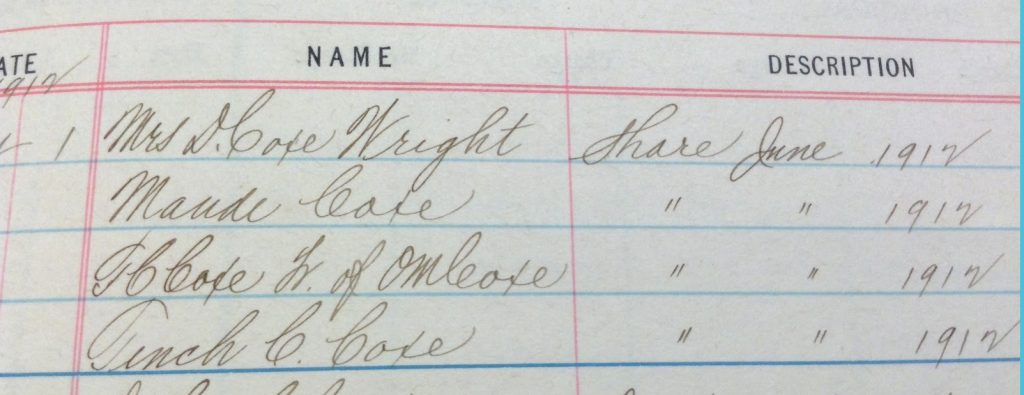



It’s often the case that the estate of a deceased individual is divided up and willed off to their heirs, however it’s clear from the ledger that Colonel Coxe’s children maintained the Coxe Estate well after their father’s passing — continuing to manage the large amount of property that had been accumulated over the last half century in the Asheville area. Today, Coxe’s substantial influence over Asheville’s early development may be most easily recognized by the downtown avenue named after him. However, due to the extensive influence Coxe had in the early cultivation of Asheville’s tourism industry — George Vanderbilt stayed at the Battery Park Hotel before he decided to finance the construction of the Biltmore Estate — it would be difficult to overestimate the influence (for better or worse depending on who you ask) that the Coxe family has had on Asheville’s history and therefore on what Asheville is today.
Joey Harrington studies History and Jazz and Contemporary Music at UNC Asheville.
Sources:
Coxe, Frank. Interview by Bruce Greenawalt. June 9, 1976. Transcript. Southern Highlands Research Center Oral History Collection. Ramsey Library Special Collections. University of North Carolina at Asheville, Ashevile, NC.
Starnes, Richard. Creating the Land of Sky: Tourism and Society in Western North Carolina. Tuscaloosa: University of Alabama Press, 2005
